I began collecting cookbooks and recipes in my teens, driven by a passion for, and curiosity about food, and everything to do with it. As my interest grew, I quickly realized that following a recipe from a book was one thing, but replicating a dish that you had taken for granted for years, which was part of your traditional cuisine, part of everyday meals, special treats and feasts was – not easy. The first step was getting simple instructions out of unyielding aunts and assorted relatives. At my grandparents’ home, they spent long hours in the kitchen, shelling, chopping, sprinkling on spices, lifting lids to peer into dishes, faces disappearing into a cloud of steam. At any given time, there was always a pot of something simmering on the fire, heaps of vegetables lying on a table with rickety legs, in various stages of preparation. Then there was the hinterland of a wood-fired kitchen, from which all the slow-cooked, wood-smoke flavoured food emerged, a dark, sooty space, where shafts of sunlight carried smoke up through slats to the attic; butter was churned and ottis toasted on hot embers; and beyond that, an assortment of grinding stones where the spices for the day’s cooking were ground and slapped into vessels in huge pats. It was a place as distinct and cut off from the rest of the house as could be imagined, another world altogether.
Collecting recipes was not an easy task. The aunts suddenly became elusive, wandering off towards a heap of vegetables, or darting out of the room suddenly on urgent errands. Often, I received a vague promise of ‘later.’ But I was a persistent recipe hunter, armed with paper and pen and I pursued what I wanted, relentlessly. Sometimes it took weeks, sometimes months. Sometimes I had to retreat and re-think my strategy.
After a childhood spent rampaging through my grandmother’s kitchen, I was lucky enough to spend long months, over a couple of years in my teens, at my grandparents’ home preparing for various exams. The days were slow moving, and centered on the kitchen. And that’s where I gravitated, happily abandoning my studies. Steamy, smoky, light and dark, there was always something interesting happening here, apart from the cooking of everyday meals. Pickling and jam-making; fruit juices and preserves; sheets and sheets of beans spread out to dry in the sun; nellikai (Emblica officinalis, Indian Gooseberry) bobbing in sugar syrup in large baranis, receiving their daily dose of sunshine; a cake fresh out from the oven, with my grandmother’s watchful eye over them all. She was an incredible cook, expert, versatile, creating entirely by feel, drawing from her vast storehouse of experience. She had mastered every technique required in the kitchen, and she went about her day at a steady, measured pace, which I now realize was just another indication of the understanding she had of her ingredients. When a jar of pickle, a vessel of juice needed a stir, she could be found leaning over it. Learning from her could only be by watching and imbibing, which I did, hovering at her elbow. I could imagine her reaction if I had asked for a recipe – incredulity, followed by one of her fits of uncontrolled, infectious laughter. I watched, tasted, observed the colour and ‘doneness’ of dishes, ate a lot, and developed a beautiful relationship with her, reflected in the letters she wrote: but I never asked her for a recipe.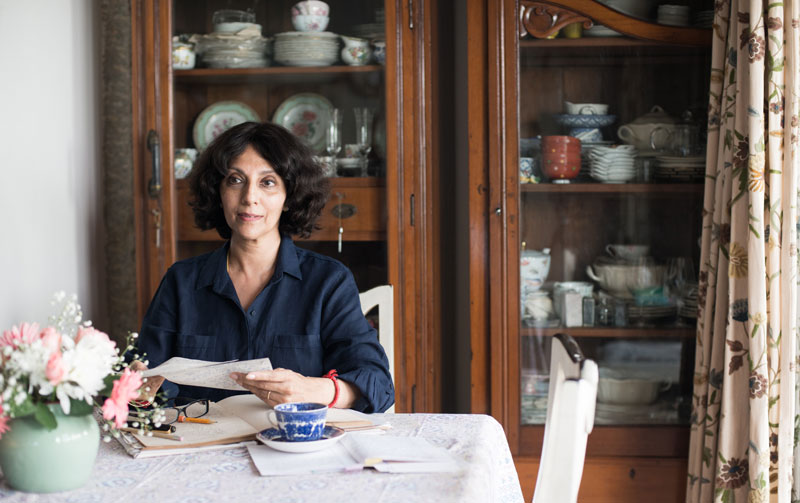
I tagged along after my oldest aunt, the best cook in the family after my grandmother. She had a hand written collection of recipes that I riffled through eagerly, but disappointingly, they were all for Western food. The genius of my grandmother’s cooking was stashed away in her head, because she, like her mother, cooked by ‘feel’; and inevitably, when she explained a recipe it involved ” a little bit of this, and a pinch of that.” It was impossible to figure out the proportions. After a little struggle, I abandoned traditional cooking for a while, and instead, took down her recipe for the lightest Victoria Sponge Cake imaginable, which I still make. I did not give up on the Coorg recipes though – my aunt and I wrote to each other, and almost twenty years later, she parted with a cache of my grandmother’s recipes, all written out in detail!
In all this, I never imagined I would become a food writer. My early career as a writer involved art, books, travel and culture. But food always hovered in the background, waiting to take centre stage. In June of 1988, I wrote my first article on the cuisine of Coorg for The India Magazine. It was one of the most exciting times in my life, when the food of our little district was showcased in the article, and people wrote to say how much they had enjoyed it.
Over the years, I explored and learned to cook many other cuisines, but the food of my childhood remained dearest to my heart and by then, my collection of recipes had grown enormous. When I lived abroad, my mother-in-law – an expert cook and generous teacher – and I wrote to each other frequently. Her letters came with precious recipes from her kitchen, with instructions in her own, unique style. Recently, my daughter, while typing out her grandmother’s recipes for me, asked, mystified, what she could have meant when she wrote: “Keep the oil and brown the onions, cutting as we do for curry (not round) then fry the rice.” The recipes needed to be first deciphered; cooking the dish was a long way off.
When I embarked on a career as a food writer, Coorg Modern appeared in Food Lovers Magazine in April 2009, followed by a slew of articles in publications like Upper Crust Magazine; Deccan Chronicle and the Taj Magazine to mention a few. I trained chefs at the Taj Vivanta, M.G.Road and collaborated with the talented Chef Jayasurya of ITC Dakshin, to hold a very successful promotion of Coorg food, A Gourmet’s Table in Coorg, in November 2013. At last, I think I could claim some ownership of the food I had been cooking for so many years.
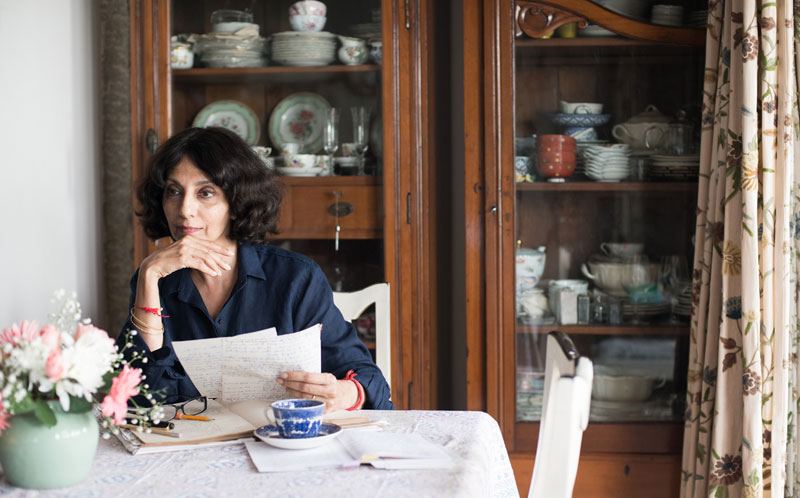
And then there is my blog, The Coorg Table®, begun in 2012, to which I had, and continue to have, a wonderful response. When I see my recipes, or sentences and phrases I have written reproduced elsewhere, I am delighted that they have brought joy and inspiration to other people. These dishes, handed down the generations by the women of Coorg, have reached me through my grandmother, mother-in-law, aunts and the many friends I made while writing my book on Coorg. I have tried hard to standardize them, and make them foolproof, without taking away any of the spirit and richness of the originals, and I’d like to thank all the readers who tried them out, and have taken the time to write in to say how much they loved them.
Looking back, I realize how fortunate I was to have been able to interact with all these people, and learn first hand, many skills and stories that are now forgotten. I recently received a request from a young man for a recipe for wild mango curry, which, he said his grandmother used to make for them. When she passed away, the recipe went with her, as it does so many times. Happily, I can share my recipe for wild mango curry, and many others. When I started cooking, it was in a style very different from all those women from whom I inherited my cooking traditions. I was more cautious, glancing back at the written recipes for reassurance, even when I had made the dish a hundred times. But somewhere along the years came that moment of perfect immersion, an intuitive knowledge that what I was doing was just right, and I found myself abandoning spoons, using my fingers, feeling with my mind, measuring with my eyes adding – yes, “a little bit of this, and a pinch of that.” And what would my grandmother have made of this I sometimes wonder, all this fuss over food that appeared every single day on her table. I can just picture her, sitting on her particular chair in the dining room, having removed her familiar blue apron, tired after the morning’s cooking, and smiling that rare, luminous smile of hers.
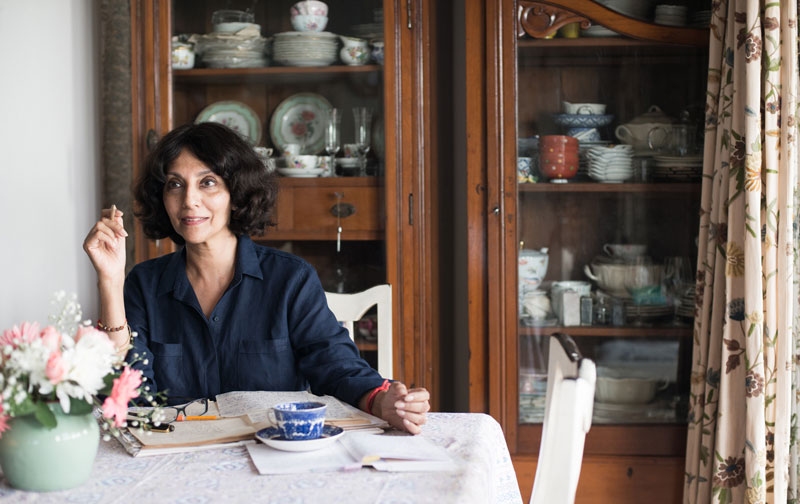 Image Credits: Nithin Sagi
Image Credits: Nithin Sagi

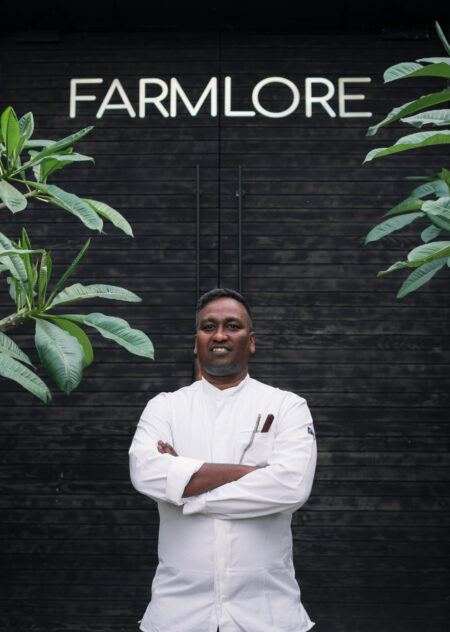
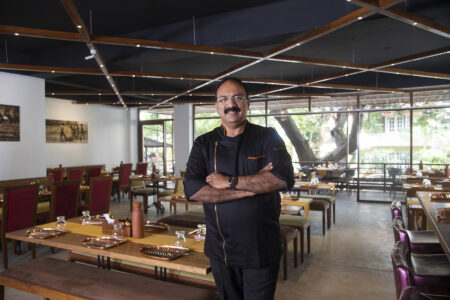
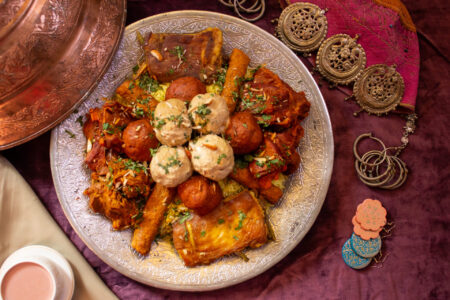
Hi Kaveri Acca,
I’m a huge fan of your writing. I love the way your words are woven together to create pure magic ..The scenes you depict seem so cosy and takes me back to my memories of childhood in Coorg. All the photos that go along with your writing deserve a special mention too! I’m in the process of reading The Vanishing Kodavas (You had autographed a copy for my parents – Bose and Swathy ) . I just came across this site today and its wonderful! Will surely try out the recipes sometime! You are an inspiration to me, as I love to write too! Will share this site with Mum. Keep writing!
Hello Aditi, I am so happy to see you on this page, welcome to The Coorg Table. Those scenes are cozy and magical, as you say, and it is our beautiful land that made them possible, which is why so many of us who have experienced living there recognize those moments. I am delighted to hear that you enjoy the posts and images. It takes some inspiration and a lot of effort to try and capture the character of a particular dish, so thank you very much for your appreciation. Please do share this page with you mum, and friends, and I would love to read some of your work too. Warm wishes.Kaveri Akka.
Dear Kaveri,
I am a regular reader of Food Lovers magazine and that was the first time I read your article. I fell in love with your writing style that instant. My mom and grand mother also cook the way you mentioned, ‘little bit of that’ style and it is almost impossible to get a recipe. I still try.
I am writing in to say that I have not seen anyone write about food the way you do. I am from Kerala and the writeup on Malabar cuisine sure got my attention. The photos sure deserve a mention.
Thank you so much for doing what you do. You are the reason people outside Coorg know about your food.
You are an inspiration.
Hello Aparna, thank you very much for your generous appreciation of what I do. I have to say, that I love my work, so maybe that makes it easy to put in my very best. I hope that you will try out some of the recipes, let me know how they turn out, and of course, keep reading these pages. Since you are from Kerala, I think you may enjoy the article ‘Seduced by Spice’. Warm wishes.Kaveri.